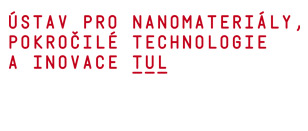 Signs of planetary climate and ecological disruption have proliferated over the last few years. A growing body of robust evidence suggests that human activity is increasingly disrupting the earth’s geological, climatic and biological systems. Not only environmental NGOs and activists, but also researchers and established academic bodies (including the IPCC and the European Academies' Science Advisory Council) are calling for urgent changes in order to mitigate anthropogenic impact. This includes changing the current “modern” modes of food production, energy production, travel, and waste management. Many, in fact, propose a radical rethinking of the overall relation between nature and culture as well as economy and ecology in order to better accommodate humanity’s inextricable entanglement with the environment.
Signs of planetary climate and ecological disruption have proliferated over the last few years. A growing body of robust evidence suggests that human activity is increasingly disrupting the earth’s geological, climatic and biological systems. Not only environmental NGOs and activists, but also researchers and established academic bodies (including the IPCC and the European Academies' Science Advisory Council) are calling for urgent changes in order to mitigate anthropogenic impact. This includes changing the current “modern” modes of food production, energy production, travel, and waste management. Many, in fact, propose a radical rethinking of the overall relation between nature and culture as well as economy and ecology in order to better accommodate humanity’s inextricable entanglement with the environment.
The successful transition to a post-carbon and ecologically sustainable world appears to require actions and commitments by a diverse set of actors – from nations to cities, businesses to governmental organizations, communities to individuals. Academic institutions and communities can potentially play a huge and positive role in this process. Academically produced knowledge is crucial for identifying and understanding the planet’s unfolding ecological condition, as well as devising possible strategies for coping. These strategies might not only point to technological but also social innovation and change. At the same time, academic communities need to critique and modify their own practices, standards, and expectations in order to reduce their harmful environmental impacts. This includes reconsidering the modes and intensity of travelling, and use of energy and other resources, including waste management. Not only could such practical changes significantly and positively shape the planet’s emerging ecological state, but they could also add to the public authority of science when researchers and institutions call for societal action.
The conference will provide an insight into the current international debates in these issues and the tangible steps European academic institutions and communities are making to increase their ecological sustainability. A special panel will be dedicated to developments and efforts in the academic landscape in the Czech Republic.
The event is organised by the ‘Responsible Research and Innovation’ group supported under Strategy AV 21 and under the auspices of the President of the Czech Academy of Sciences, Prof. Eva Zažímalová.
The event will be held in English without translation. Space is limited. Book your place by 25 October 2019 by filling up this online form.
PROGRAMME
- 09:30-10:00 Registration
- 10:00-10:10 Welcome and introduction by Tereza Stöckelová (Institute of Sociology, CAS)
- 10:10-11:10 SUSTAIN IT! Managing Sustainability and Enabling participation at Freie Universität Berlin, Andreas Wanke (Freie Universität Berlin)
- 11:30-13:00 Towards Ecological Sustainability at Czech Academic Institutions, Panel Discussion
- 14:00-14:45 Rethinking the Conference Format, Michelle Bastian (University of Edinburgh)
- 14:45-15:30 Political Economy of Academic Mobility in Post-Carbon World, Jana Bacevic (Cambridge University)
- 15:30-16:00 Open mic: plenary discussion and networking
More information available here.







































